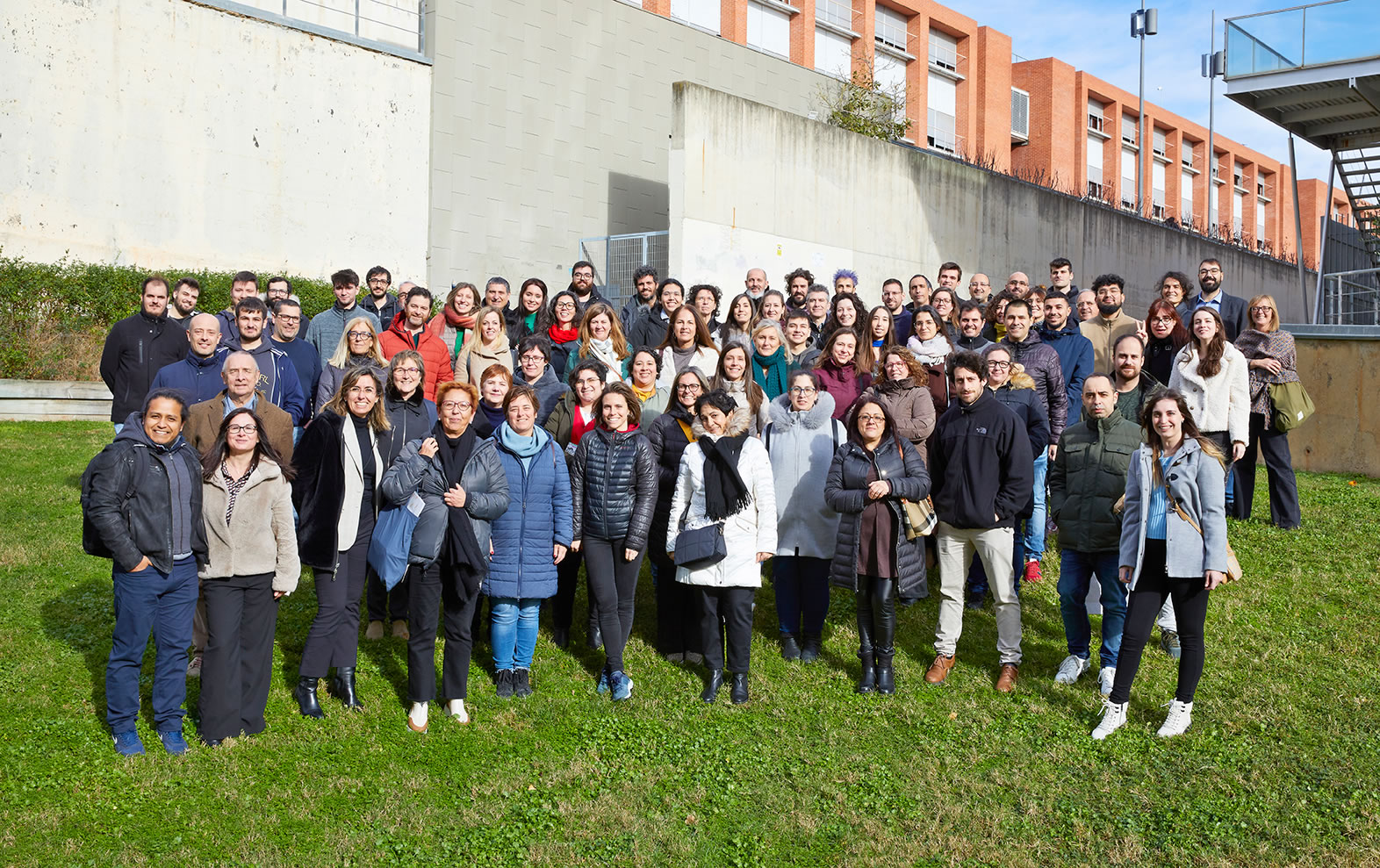
-
Services
-
Start hiring quality goods and services in an agile, efficient, and advantageous way thanks to joint action by participating members.
What's your job?
Solutions for your profile
-
-
the csuc
-
location
Seu social (Edifici Nexus)
C/ Gran Capità, 2. 08034 BarcelonaCentre de Processament de Dades (Edifici Annexus)
Magatzem cooperatiu GEPA
-
- Contact
THE CONSORTIUM
About us
Our goal is sharing and pooling academic, scientific, library, of knowledge transfer and management services for our consortium institutions, to improve effectiveness and efficiency of the university and research system by promoting synergies and economies of scale.
CEO's Welcome

The CSUC is born in January 1st, 2014, as a conjunction between CESCA's trajectory, which over the last 22 years has been providing services related to ICT infraestructures, and CBUC's trajectory, which one did the same in the library field during the last 18 years.
The will of the associated and aggregated entities -the seven public universities, three private universities and the Generalitat de Catalunya- is to keep on going into detail about the fields in which those institutions had been working to, and extend their actuation to new university management areas.
Welcome to CSUC's website!
Olga Lanau
Managing Director
Mission and Vision
Mission
The CSUC must identify, design and execute shared projects in a collaborative way to allow the Catalan universities increase their efficiency by exploiting economies of scale and synergies.
Vision
By cooperating with the entities that make up the Consortium, we provide shared services and technologies for teaching, research and knowledge transfer, which reach citizens, allowing greater efficiency of the Catalan research and knowledge system.
History
December 10, 2013, the Consorci de Serveis Universitaris de Catalunya (CSUC) was born to boost the efficiency of the Catalan universities throughout cooperation and coordination.
Created under the Generalitat de Catalunya initiative, CSUC integrates two consortiums which, until now, had been working promoting and offering consortial services in the ICT and library fields, the Consorci de Serveis Científics i Acadèmics de Catalunya (CESCA) and the Consorci de Biblioteques Universitàries de Catalunya (CBUC), respectively.
At the beginning of the 90s, the Generalitat de Catalunya promoted the creation of CESCA, in that moment under the Centre de Supercomputació de Catalunya denomination, through the former Fundació Catalana per a la Recerca and with the collaboration of the universities and the CSIC. CESCA has been recognized as a singular science and technological infrastructure (ICTS, 2000), and has been awarded with the Narcís Monturiol Medal (2001).
CESCA was created under the objective of sharing a high performance computing infrastructure that the scientific/technical community needed to carry out its research in different fields, such as theoretical chemistry, meteorology or astrophysics. The service started being offered with an IBM 3090 and a Cray X-MP vector supercomputers. Later, for the life sciences field, a pharmacophore search service was created.
CESCA services were expanded to the communications field as well. In 1993 the Anella Científica (Scientific Ring) was created, a high-speed data transmission network which was a pioneer in Europe. Such infrastructure connects Catalan institutions with international research networks through the RedIRIS node which, since 1996, CESCA hosts. Apart from internet access, the Anella Científica provides several added-value services such as digital certification (2000), videoconferencing and voice over IP (2002), security (2003) and mobility using Eduroam (2005).
In 1999, the Catalonia Neutral Internet Exchange Point (CATNIX) was created to favor the exchange of traffic amongst the different internet service providers. CATNIX promoters asked CESCA to host and manage it, a task that the center has been doing since then.
In 2001, collaboration with CBUC was strengthened, since both centers together launched the Tesis Doctorals en Xarxa (TDX) repository (www.tdx.cat). TDX was the first from a varied digital repositories created to increase the content accessibility and visibility from the institutions who take part in it.
In order to emphasize the support and ICT services which were offered to the Catalan universities, besides supercomputing services, in 2009 CESCA statutes were amended. Since then, the center came into being the Consorci Centre de Serveis Científics i Acadèmics de Catalunya. In addition, the change also represented the creation of several e-Administration shared services: e-voting platform, registration of incoming and outgoing documents, archive and preserving digital
In 1996, after university libraries had been working together for several years, CBUC was created pursuing the initial objective of start driving the Catàleg Col·lectiu de les Universitats de Catalunya (CCUC). The Consortium was integrated by the public universities and the Biblioteca de Catalunya.
Since its creation, but even in the previous catalogue preparation work from the beginning of the 90s, CBUC has been working to improve the library services through cooperation not only with the consortial institutions, but also with many associated members and collaborators which have participated and taken advantage of its services.
Immediately as of its creation, it was considered to being possible and useful to organize an interlibrary loan program. In that way, and since 1997, CBUC has promoted agreements allowing institutions library users to access to documents which are not available in their libraries. For instance, requesting and taking documents on a loan from another library for free, taking books on a loan from other libraries and requesting copies.
The positive results of these initial programs led the Consortium to venture into new activities such as joint purchases of equipment, training and benchmarking. In particular, the Biblioteca Digital de Catalunya (Digital Library of Catalonia) was created. It is a service which collects both the electronic information jointly licensed, since 1999, and the open access repositories.
Since the collaboration for the TDX repository started, CBUC and CESCA have been keeping on working with other institutions, such as the Biblioteca de Catalunya, editing institutions and, of course, universities, in order to put more contents in open access. Thanks to this work, CSUC nowadays manages or participates in many electronic information deposits as RACO, for cultural and erudite journals; RECERCAT, for research documents; MDX, for teaching materials; MDC, for digital memory of Catalonia…
CSUC works under the basic goal of sharing or pooling academic, scientific, library, of knowledge transfer and management services for participant entities to enhance synergies and improve efficiency.
CSUC aims at the maintenance of CESCA and CBUC services and expanding them. In that way, CSUC will incorporate new lines of activity, such as joint procurement, and any other area where collaboration and sharing could benefit the research and university system.
We are integrated by the Generalitat de Catalunya and the public Catalan universities (UB, UAB, UPC, UPF, UdL, UdG, URV i UVic-UCC). In addition, the UOC and the URL participate as associate members.
Links of interest
Related documents

Barcelona
Gran Capità, 2 (Edifici Nexus)
93 205 6464
Lleida
Parc de Gardeny 8 C (GEPA)
93 551 6242
Services
CC BY 4.0
Web project developed by ACTIUM Digital







